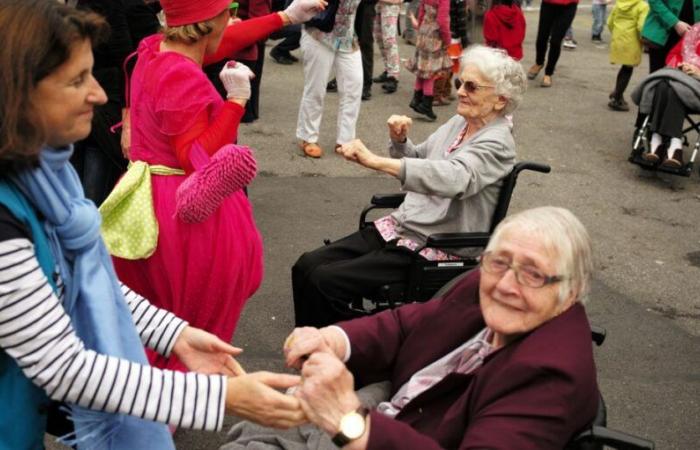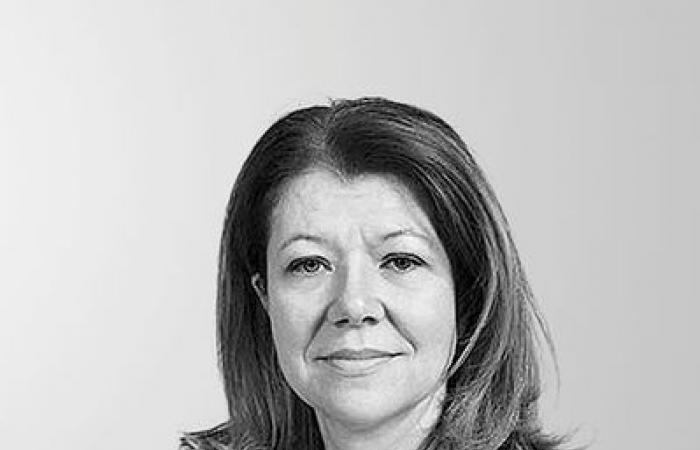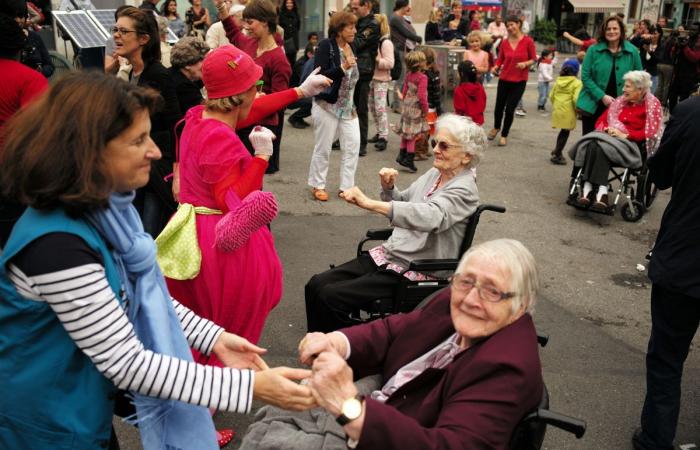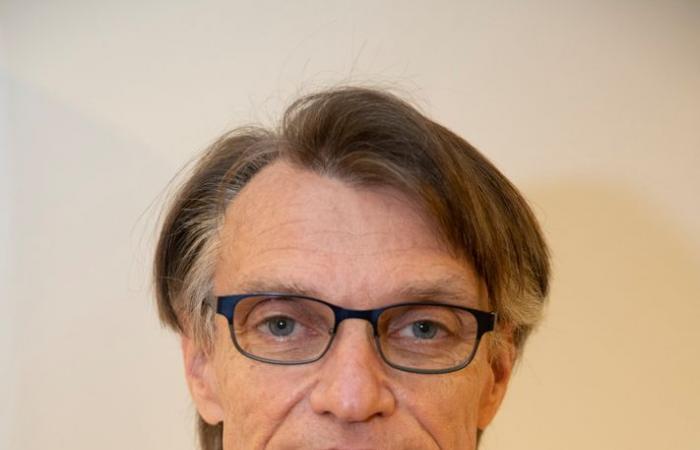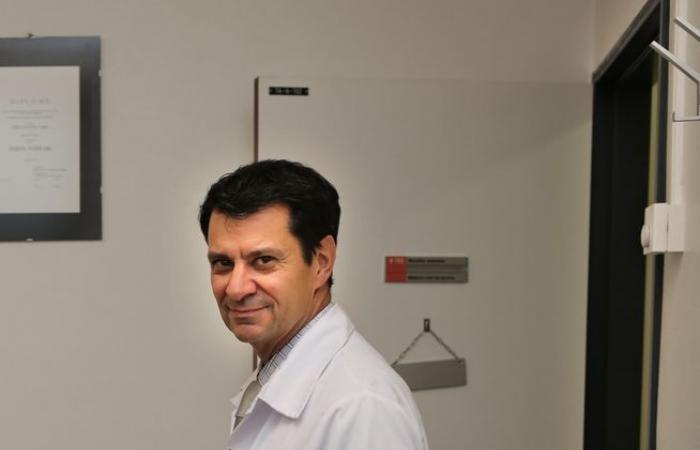ThoseRisk of fractures –The osteoporosis bill exceeds 3 billion per year in Switzerland
This disease is very common, especially in women after menopause. To avoid broken bones, two experts advocate systematic screening.
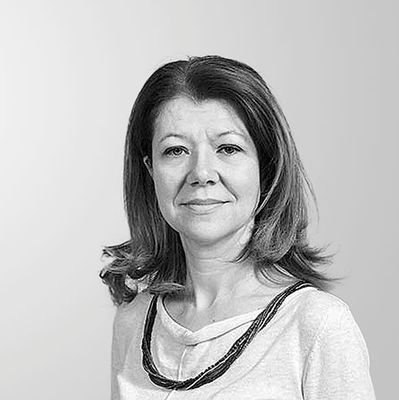
Posted today at 7:03 p.m.
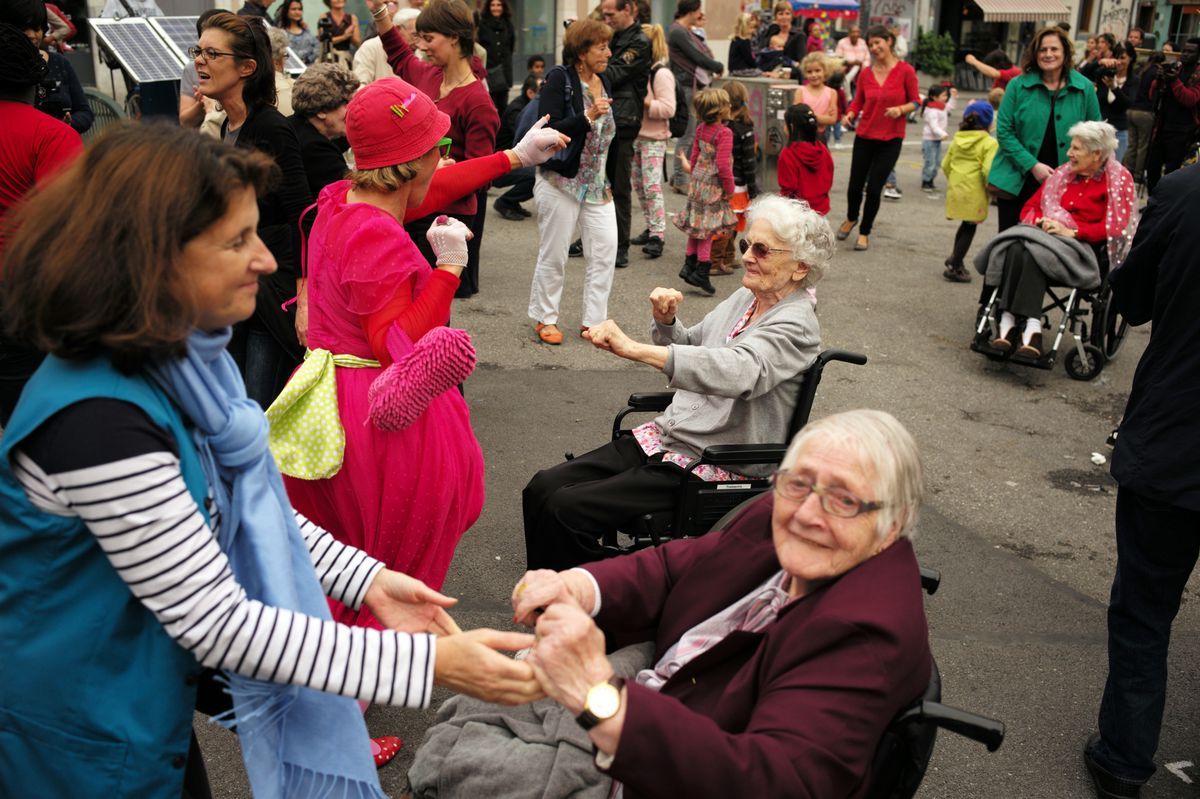
Osteoporosis mainly affects elderly women. Menopause is a crucial step. Here, an illustration photo during a rally organized in Geneva.
TDG/Olivier Vogelsang
Subscribe now and take advantage of the audio reading function.
- Osteoporosis costs 3.5 billion euros per year in Switzerland (2019 figure).
- Doctors recommend systematic screening from menopause in women.
- This examination makes it possible to obtain precise results for 100 francs.
- The available treatments half reduce the risk of bone fractures.
“In people’s heads, it’s normal for bones to break because you fall or because you get older. But this evolution is not inevitable, ”says Olivier Lamy, chief doctor at the interdisciplinary center of bone diseases in the CHUV. With his colleague Serge Ferrari, head of the Hug bone disease department, he has just signed an editorial on osteoporosis in the “Swiss medical journal”. The two men call for systematic screening for this disease which causes fragility fractures.
The stakes are high. According to Olivier Lamy, one in two women and One in five will encounter such difficulties during their life. Switzerland would be particularly affected. According to a European comparison published in 2021, it is estimated that Osteoporosis cost Almost 3.5 billion euros (40o euros per inhabitant), in 2019 in our country. Fracture costs then represented 4.5% of all public health expenses.
These figures dissolate the two doctors, especially since they increase with the aging of the population. They underline that “prevention would be quite simple if a systematic screening of osteoporosis as a measure of bone mineral density (DMO) from menopause In women and from the age of 60 in men was reimbursed ”.
Screening reimbursed in case of illness
Olivier Lamy assures it: this DMO, also called osteodensitometry by X -ray -ray energy (DXA), is “very simple and very reliable”. Her colleague adds that, when he is practiced today, it is only reimbursed in the event of a fragile fracture or in the presence of specific risk factors. “As part of a preventive examination, the latter is only reimbursed if the result shows osteoporosis. It is as if we start from the idea that we should know before doing the analysis if there is a disease or not. ”
Concretely, people are lying on a low-energy bed and x-ray device pass over them. Radiations are 35 times less than during a chest radiography. This tool provides imagery of the lumbar column and hip. In general, the spine is checked at the same time to detect possible cups or fractures which would indicate an already installed disease.
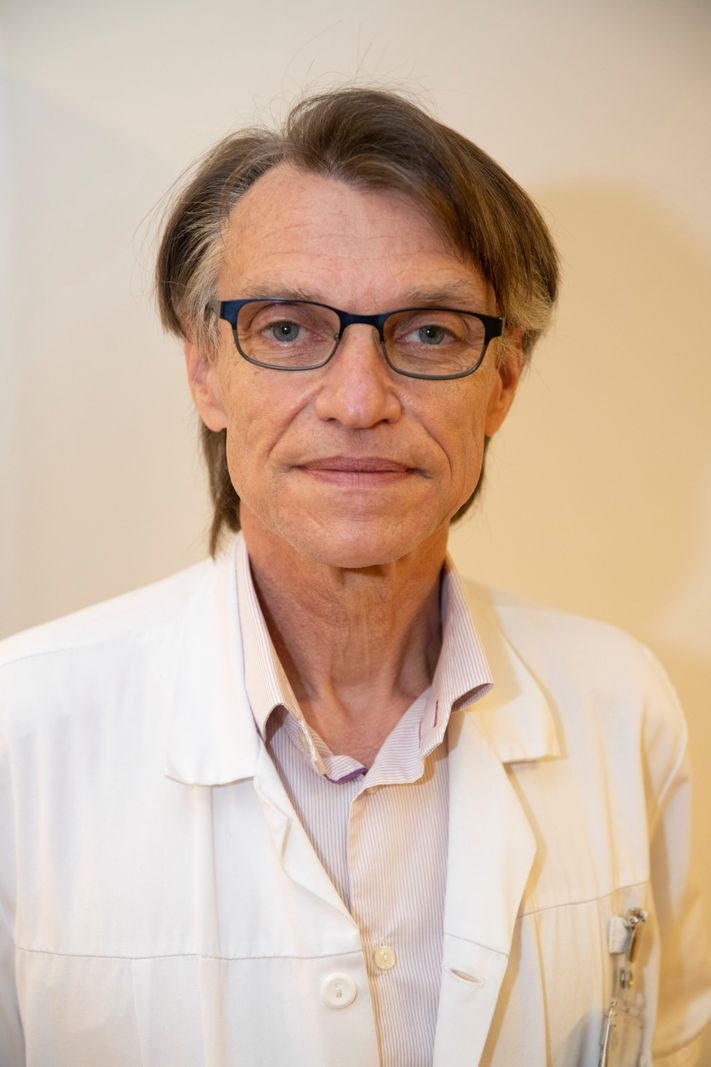
Professor Olivier Lamy, at the CHUV.
Florian Cella/24 Hours
The whole lasts about twenty minutes, at a cost of approximately 100 francs. Small parenthesis: this amount should be revised downwards in future ambulatory pricing. If this seems good news, doctors fear, however, that private centers deem this inexpensive examination and abandon it.
According to Olivier Lamy, the frequency of screening could vary depending on the result obtained. If no problem was identified, the patient could repeat the exercise ten years later, or even more. But if the values were slightly disturbing, it would be necessary to redo it three to five years later.
Fractures linked to osteoporosis reduced by two
The interest of all this? “What is crazy is that we have drugs that make it possible to halve the fractures linked to osteoporosis,” continues the internal medicine specialist. It mentions a infusion which can be administered to menopausal women between 50 and 60 years, and offer protection for ten years. Serge Ferrari adds that generic drugs, and therefore cheap, are available.
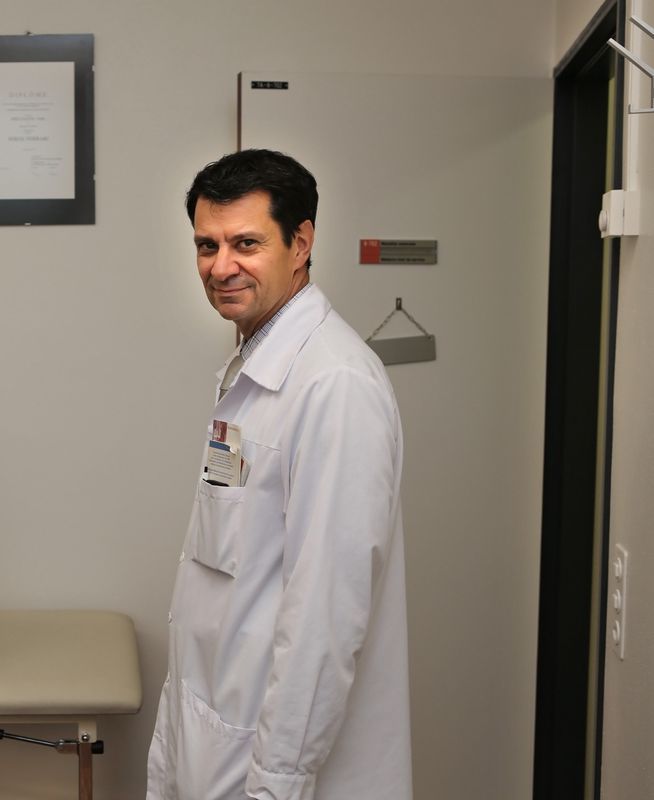
Professor Serge Ferrari, at the HUG.
TDG/Steeve iuncker Gomez
Such controls are practiced in Germany or the United States. But Serge Ferrari specifies that, for the past fifteen years, the International Foundation for Osteoporosis (IOF) mainly focused on secondary prevention (targeted on people who have had a fracture).
-“Under these conditions, we have lost sight of, internationally, the importance of primary prevention (Editor’s note: which aims for people who have no symptoms). However, a new consensus appeared recently within the IOF to call for such control, especially among women who enter menopause. ”
This international context would be a first explanation of the lack of systematic examination in Switzerland. Serge Ferrari adds to it that, in general, Prevention is underdeveloped in our country. Finally, the financial question arises, while trying to control the increase in health costs.
On this last point, Olivier Lamy insists: “It would be more economical to prevent functional decline and fractures in our elders, rather than treating them. This policy has even been shown to reduce EMS bed needs. ”
According to the Federal Office of Public Health (FOSP), “interested specialized circles can at any time send a reasoned request for cost management (Editor’s note: by compulsory care insurance) to the Federal Commission for General Services and Principles (CFPP) ”. This request must demonstrate that the service meets the criteria of efficiency, adequacy and economicity set in the Health Insurance Act. The final decision returns to the Federal Department of the Interior.
The OFSP is not aware of a request concerning the DXA as a systematic screening exam. Menopause experts, however, hope to relaunch the debate in Switzerland. Last year, a national alliance was launched. Under the aegis of Swiss health promotion, there are in particular representatives of the medical disciplines concerned and patients.
“Our goal is to write a document summarizing knowledge of osteoporosis which is the subject of an international consensus,” sums up Serge Ferrari. We also hope that such paper will find an echo with certain parliamentarians, and that he can help us advance the file in politics. ”
Prio.swiss, the association of Swiss sickness insurers, believes that “this proposal deserves to be studied in detail”. His spokesperson, Christophe Kaempf, adds, however, that “the legislator has given the main role to the LAMAL the management of care”. The financing of generalized prevention measures, on the other hand, is the responsibility of the public authorities.
Some advice against osteoporosis
-
Food. Adopt a healthy and varied diet.
-
Dairy products. “There is no doubt that adequate calcium contributions during growth promote bone capital,” emphasizes Serge Ferrari. In seniors, there is a debate linked to a possible risk of increasing cardiovascular disease, but the recommendations are favorable to dairy products. ” He specifies that, in any case, most elderly women receive calcium supplements.
-
Menopause. According to Olivier Lamy, hormonal treatment must be encouraged, when possible.
-
Movement. You must perform regular physical activity – about twice 45 minutes a week. Later in life, activities like pilates or yoga are useful to guarantee maintenance and prevent falls.
-
Family history. Osteoporosis has a strong genetic dimension. According to Olivier Lamy, screening at the time of menopause is even more justified in people who have family history.
-
Risk factors. On the personal level, there are others that it is worth keeping in mind. These include early menopause, certain endocrine alterations, very low weight or diseases that can limit food absorption (gluten intoleranceFor example).
“Latest news”Do you want to stay at the top of the info? “24 Hours” offers you two meetings per day, directly in your email box. To not miss anything of what is happening in your canton, Switzerland or in the world.
Other newslettersConnect
Caroline Zuercher has been a journalist at the Swiss section since 2005. She has in particular covered subjects related to health and health policy. Previously, she worked for Swissinfo and in the morning.More info
Did you find an error? Please report it to us.
0 comments

